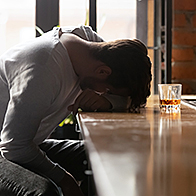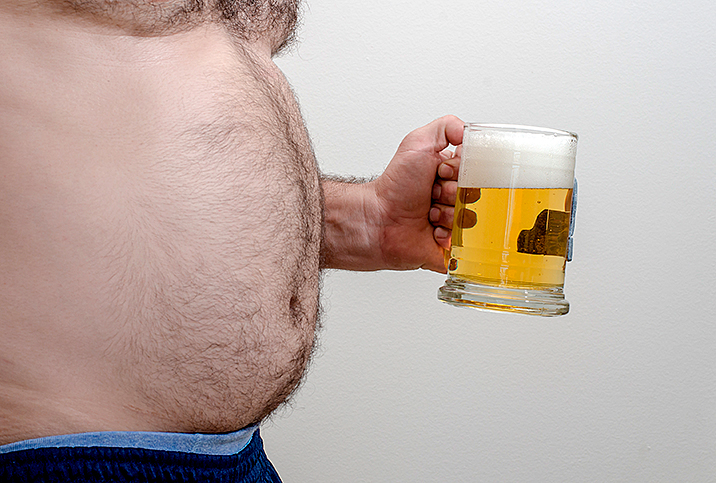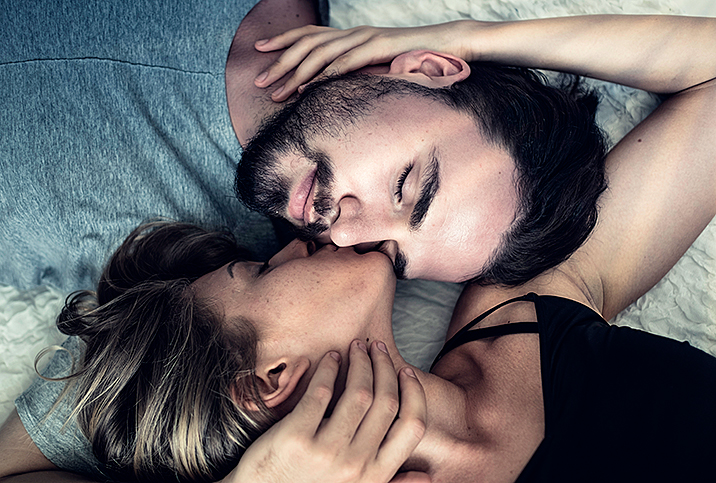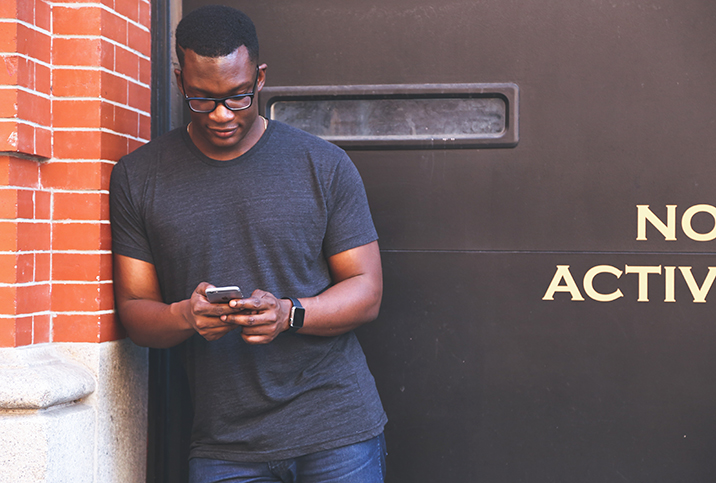For Long-Term Happiness, Break Self-Medicating Behaviors

Imagine you're about to walk on stage to deliver a speech at a large event. You know everyone in the room will stare, listening intently to every word you say, and despite rehearsing the speech several times, you can't shake the looming anxiety.
Thankfully, there's an open bar. You quickly down a vodka soda before you're rushed to the stage and you feel your nerves relax a bit. The crippling anxiety around public speaking starts to fade.
While most of us may not be tasked with delivering important speeches on a regular basis, it's likely we're familiar with the idea of having a drink to "take the edge off" stressful situations, whether we've done it personally or seen it on TV.
Alcohol as stress relief is pervasive in our culture. We go out for happy hour after a stressful day at work, we buy our mothers tacky artwork that reads "Rosé all day" or "It's wine o'clock" as a tongue-in-cheek joke, and we tell ourselves "I need a drink" when it's all getting to be just a bit much. We might watch as a friend we know going through a breakup hits the bar every night so they don't have to confront their emotional baggage. We may have even been that friend ourselves.
Regardless of the severity of the situation or the substance you're using to dull the pain, you're self-medicating. There may be a sharp distinction between a post-breakup bender for a week and a cocktail before a presentation, but in each instance, we are using a substance to calm our nerves, alter our feelings and avoid serious emotion.
Whether the substance is alcohol, over-the-counter medicine or illegal drugs, what you're doing is working outside a healthcare situation by prescribing your own treatment.
What is self-medicating?
"You have people looking for ways to cope with their dysregulated emotions or anxiety or depression," said Leah Walker, Ph.D., a Texas-based psychotherapist. "It's anything that distracts you. It's numbing out what's going on inside; not just numbing out but also when it becomes too much to handle and we don't know where to turn. We don't know how to process, and so we suppress those emotions and bury them in something else."
Walker made it clear self-medicating isn't the same as having a substance use disorder, which she distinguished using the Diagnostic and Statistical Manual of Mental Disorders, 5th Edition (DSM-5). Self-medicating is a temporary reprieve from negative emotions, whereas substance use disorders typically involve some form of dependency and interference with everyday life.
As with anything else, self-medicating falls somewhere on a spectrum. We might self-medicate with drugs or alcohol, or with habits that are less obviously damaging. Someone who lifts weights when they feel depressed could be self-medicating if they lack a clear goal for working out. Other people might turn to one-night stands or video games. It's really a matter of why we're engaging in something that determines if it's a self-medicating behavior.
"This isn't necessarily a bad thing," said Cami Ostman, M.S., a licensed marriage counselor in Seattle and founder of the Narrative Project, a coaching service for writers. "There's a line somewhere between self-soothing and self-medicating, and I think we draw that line where it becomes a vice, when it becomes something you can't stop doing or you're dependent on it in some way."
As a runner, Ostman has a personal connection to self-soothing. For her, running is an exercise in mindfulness, another key differentiator between a habit that might be self-soothing as opposed to self-medicating.
"Self-soothing requires a point of focus, versus numbness, which doesn't have a focus," she explained. This is why running, if it is monotonous, can become a self-medicating habit.
"I can run and not be focused if I'm just on a regular, flat surface," Ostman added. "Something that requires me to be a little more focused—not on my troubled thoughts—is more likely to be soothing rather than just numbing me out."
How can we stop self-medicating habits?
Habits are hard to kick, especially when they make us feel good or, at the very least, not feel bad. What sounds better, a few glasses of wine or weeks, maybe months, of working with a licensed professional to grapple with your social anxiety? Odds are that most of us would say the wine, but the other choice is healthier and can help for a lifetime rather than one night.
Walker said a solid first step toward breaking our bad habits is to set "SMART" goals, which stands for specific, measurable, achievable, relevant and time based. In essence, this means setting small goals that allow you to track your progress and being specific. For example, "I'm going to drink less" is not the same as "I'm going to drink only on weekends."
Ostman added that we need two other elements: support and accountability.
"Support is the people who wrap their arms around you and say, 'OK, Booboo. It's OK. We can do this. I'm here with you,'" she said.
Accountability, on the other hand, is the people who cross their arms, tap their toes and tell you to get up and commit. Ostman recalled a time when she debated, in the middle of a downpour, whether to go for a run or have a cozy night in with a glass of red wine. She took a poll on Facebook to help her decide and, as she described it, "I got 50 people saying, 'Suit up.'"
If you want to break a self-medicating habit, the most important point Walker and Ostman wanted to identify is this: You can't do it alone.




















